Ofsted judgements. Floor standards. Coasting schools. Schools are going to be subject to multiple accountability judgements at once. This might be helpful, ensuring no school falls between the cracks. Or it might undermine the credibility of the accountability regime by signalling confusing messages to schools.
The interplay between Ofsted judgements and coasting schools is interesting. There are currently NO coasting schools – there are schools who we know have fallen below the bar in 2014 and so risk being deemed coasting after 2016. And, to demonstrate how these measures might play out, we have calculated which schools would have been coasting in 2012, 2013 and 2014 using the government proposed definition.
There are outstanding yet coasting secondary schools
We think there are two ‘outstanding’ secondary schools that would have been deemed as coasting between 2012 and 2014, were the measure to have existed. And there are 20 ‘outstanding’ secondary schools whose 2014 results place them below the bar and who must ensure they improve in 2015 and 2016.
The distinction between looking at a single year of data and those who falls below the bar in all three years is interesting. There are a quite a few ‘good’ schools (391) who meet the definition of coasting for 2014 only, but only 93 of these would in 2012, 2013 and 2014. By contrast, 123 ‘unsatisfactory’ schools meet the criteria in 2014 and the majority these (75) would also have met the criteria in 2012, 2013 and 2014.

Seven of the eight outstanding yet coasting primary schools are junior/middle schools!
The data on primary schools looks similar, except that there are (according to Ofsted) very few unsatisfactory primary schools. We think there are eight ‘outstanding’ primary schools that would have been deemed as coasting between 2012 and 2014, were the measure to have existed. But seven of eight of these are actually junior or middle schools who were not responsible for administering their own progress baseline – the Key Stage 1 assessment. Followers of our work will know that we assert this is due to primary schools depressing Key Stage 1 assessments in order to show strong progress, rather than test inflation taking place at infant/first schools. If Key Stage 1 is to play a continuing and prominent role in school accountability then perhaps the use of teacher assessment should be revisited.
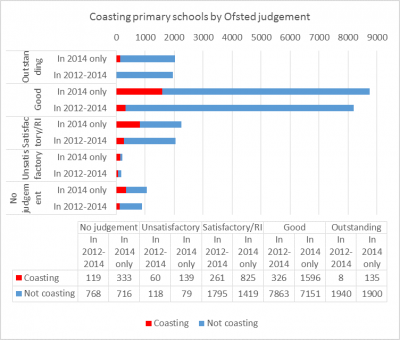
**Title credits to @jamestheo

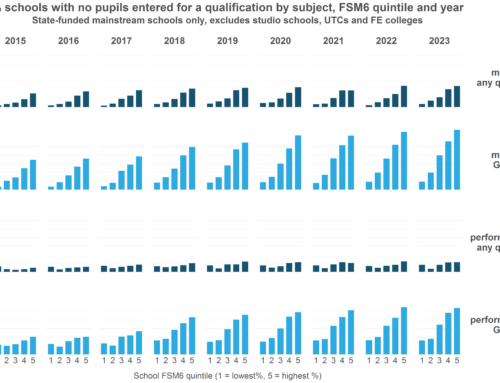
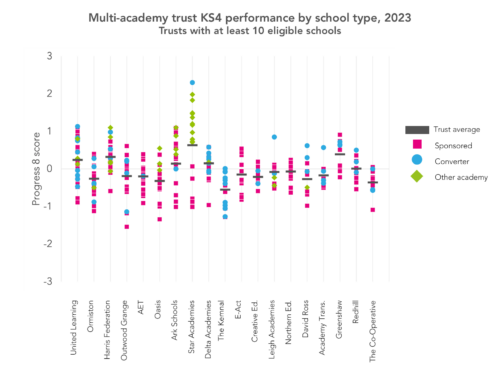
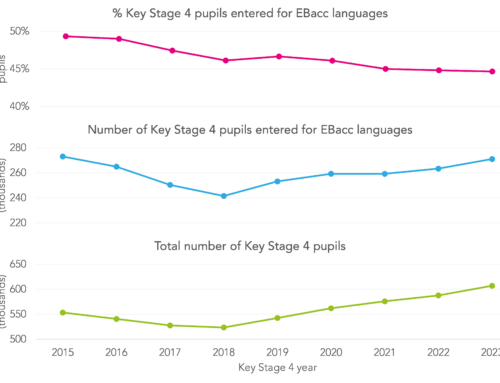
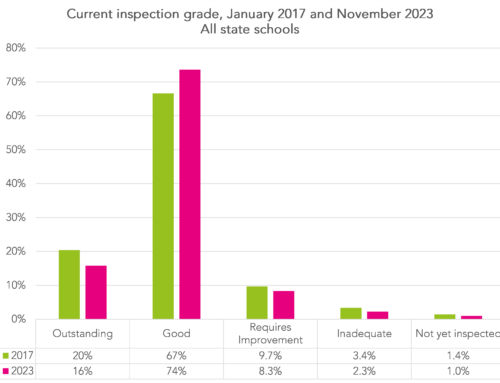
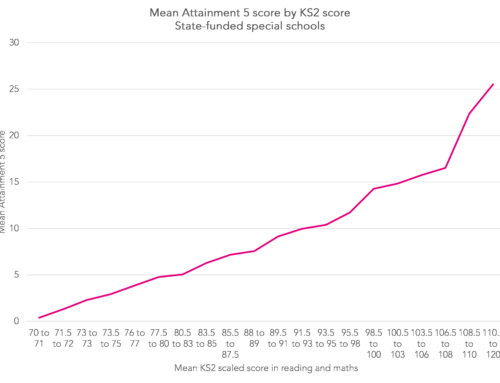
Leave A Comment